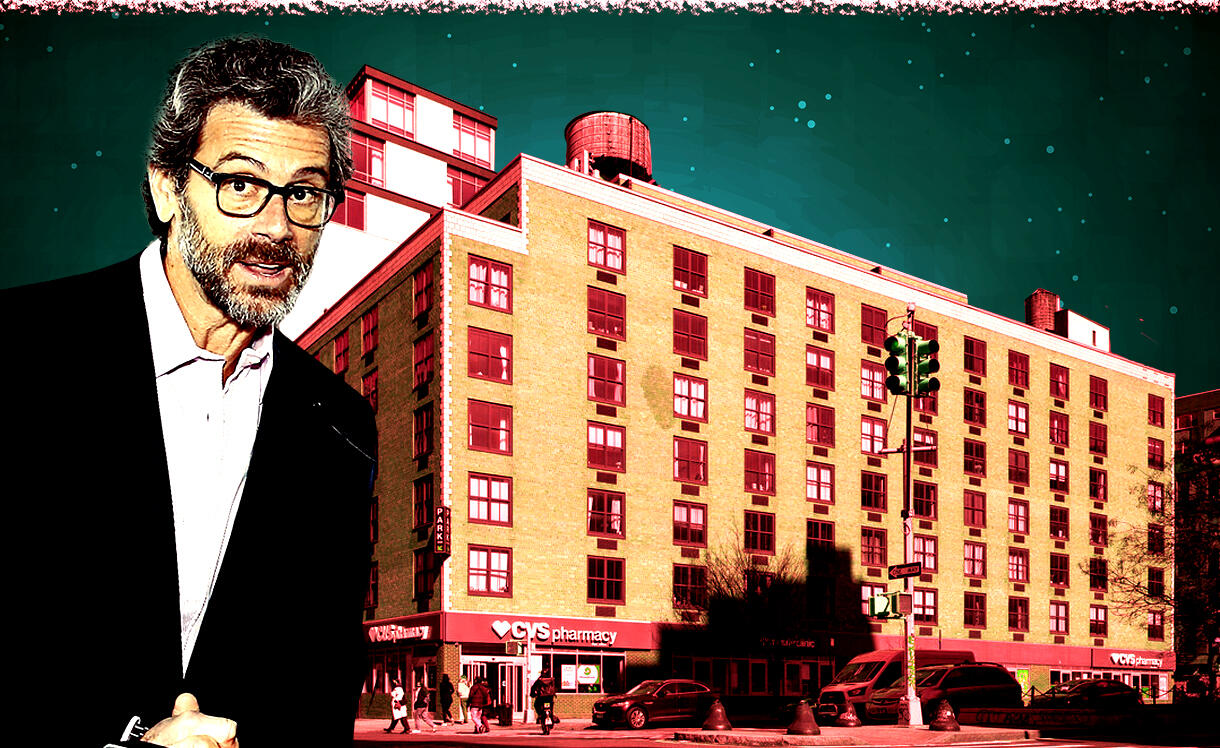 Gilbane buys Bronx affordable housing portfolio for $107M
Gilbane buys Bronx affordable housing portfolio for $107M
Trending
Empire State Realty Trust buys Noho property for $115M
REIT continues expansion into multifamily, acquiring 298 Mulberry Street

Empire State Realty Trust is doubling down on diversification into Manhattan’s multifamily market.
The office-centric REIT acquired a mixed-use property at 298 Mulberry Street in Noho for $114.9 million from Broad Street Development and a real estate fund connected to Texas-based Crow Holdings Capital.
A JLL team consisting of Andrew Scandalios and Rob Hinckley brokered the transaction on behalf of the sellers, who acquired the building for $91.5 million in 2014, according to city property records.
Built in 1986, the seven-story property consists of 96 market-rate rental units and a CVS store across more than 86,000 square feet at the corner of East Houston Street.
Read more
 Gilbane buys Bronx affordable housing portfolio for $107M
Gilbane buys Bronx affordable housing portfolio for $107M
 Long-shuttered LaGuardia Courtyard Marriott sells for $53M
Long-shuttered LaGuardia Courtyard Marriott sells for $53M
 ATCO buys out Ruben at 630 Third Avenue for $98M
ATCO buys out Ruben at 630 Third Avenue for $98M
ESRT said in a release that the purchase will be funded by cash from the firm’s balance sheet and “proceeds from recent and future non-core asset dispositions.” Those dispositions include the sale of two Westchester County office buildings for $95 million, which will be shielded from capital gains taxes through a 1031 exchange.
The REIT closed earlier this month on the sale of an office property at 10 Bank Street in White Plains for $42 million; the buyer was not disclosed. ESRT is also in contract to sell an office building at 500 Mamaroneck Avenue in Harrison for $53 million. The deal is expected to close in the first quarter.
ESRT’s acquisition of 298 Mulberry Street is part of the REIT’s venture into the multifamily market as a hedge against an office market downturn. The firm acquired a 625-unit portfolio of Manhattan apartment buildings at 561 10th Avenue and 345 East 94th Street last year for $307 million.
CEO Tony Malkin said on the REIT’s third-quarter earnings call that the firm is content with its multifamily play, citing the properties’ 98.4 percent occupancy.
“We thought they’ve done well,” Malkin said. “We’re ahead of where we thought we would be when we acquired and underwrote them.”
With $1.2 billion in liquidity, ESRT, which owns the Empire State Building, has focused on capital allocation as it faces no floating rate exposure and its $2.3 billion of debt does not mature until late 2024. ESRT has also purchased $275 million of its common stock in a buyback initiative that began in 2020.
The company fell out of favor with investors during the pandemic, as did many office landlords. Its stock price was about $14 before the pandemic but plunged to just above $5 in October 2020. It bounced back but began declining again in mid 2021 and is down 20 percent in the past year to about $7.
COO and CFO Christina Chiu said on the firm’s third-quarter earnings call that the REIT is “well positioned in a rising-rate environment” and “focused on opportunities in the market that are the right deal and that make sense.”




